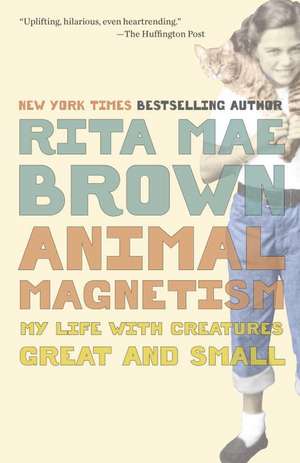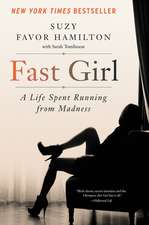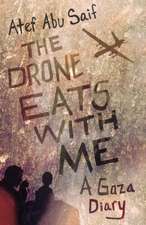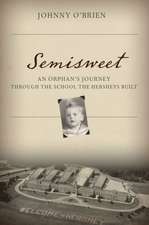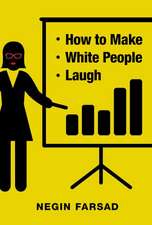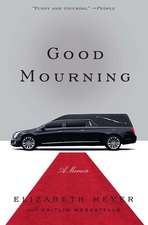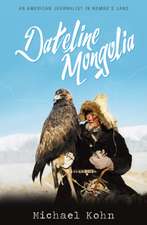Animal Magnetism: My Life with Creatures Great and Small
Autor Rita Mae Brownen Limba Engleză Paperback – 31 aug 2010
Rita Mae Brown’s earliest memory is of the soothing purr of Mickey, her family’s long-haired tiger cat, who curled up and claimed a spot in her crib. From there, a steady parade of cats, dogs, horses, and all manner of two- and four-legged critters have walked, galloped, and flown into and through her world. In Animal Magnetism, the bestselling author shares the lessons she’s learned from these marvelous creatures as well as her deep appreciation for them. We meet Franklin, a parrot with a wicked sense of humor; R.C., a courageous Doberman who defined loyalty and sacrifice; Suzie Q, the horse who taught Brown the meaning of hard work; and of course the beloved and prolific Sneaky Pie, who needs no introduction to her legions of fans. As funny as it is poignant, Animal Magnetism shows how these inspiring creatures can bring out the best in us, restore us to our greater selves, and even save our lives.
Preț: 110.06 lei
Nou
Puncte Express: 165
Preț estimativ în valută:
21.06€ • 22.05$ • 17.43£
21.06€ • 22.05$ • 17.43£
Carte disponibilă
Livrare economică 15-29 martie
Preluare comenzi: 021 569.72.76
Specificații
ISBN-13: 9780345511805
ISBN-10: 0345511808
Pagini: 235
Ilustrații: 26 CHAP-OPENING B&W PHOTOS
Dimensiuni: 134 x 204 x 15 mm
Greutate: 0.2 kg
Editura: BALLANTINE BOOKS
ISBN-10: 0345511808
Pagini: 235
Ilustrații: 26 CHAP-OPENING B&W PHOTOS
Dimensiuni: 134 x 204 x 15 mm
Greutate: 0.2 kg
Editura: BALLANTINE BOOKS
Extras
Chapter One
Money Isn’t Everything—Love Is
From the time I could put two thoughts together, I knew that I wanted a foxhound of my very own. My grandfather (PopPop) and great-uncle Bob Harmon had kept American foxhounds for years and I was crazy about them. But my dad, granddad, and great-uncle thought that at six, I was too young to handle American foxhounds. They are tremendously sensitive and possess phenomenal drive. So they decided on a Chesapeake Bay Retriever for my first puppy, my first training experience. Turned out to be a wise choice, for they are easy dogs.
Chaps, along with PopPop’s hounds, taught me how to communicate with dogs. More importantly, he taught me about love. He also had a great sense of humor. He’d steal my baseball glove, he’d bring me what were to him treats (a deer leg), plus if a puddle of water presented itself, he’d dive in. He always wanted me in the puddle, creek, or river with him.
I learned not to doubt Chaps. His senses, keener than mine, proved an early warning system. He’d lift his head, open his nostril, and gather information. Or, like the foxhounds, he’d put his nose to ground.
Not until I was in my late teens did I realize I understood dog communication, thanks to Chaps, and thanks to PopPop and G-uncle (G for Great) Bob. Canines, cats, and horses have many more ways to communicate than we do. Ears swivel, pupils dilate or contract, hackles rise or fall, tails wag or stand straight out, and the range of sounds they absorb and react to is wide. Their acute hearing picks up a tiny gurgle from a mouse as well as the snort of a stag a quarter of a mile away. Fortunately for me, hearing is my strongest sense, nudging into the cat and canine range but still well beneath their powers. When I was five I heard things. Mother thought I was expressing imagination. Finally, she took me to a doctor for tests. She realized then that I wasn’t making things up.
Chaps, born into the long-standing contract between humans and dogs, played his part. I learned to play mine. He’d run ahead, stop, look at me, and say, “It’s safe up to this point.” Most people don’t realize what their dogs are telling them when they run ahead and stop. Now, this isn’t true with a pack of foxhounds, although it can be true with a foxhound kept as a pet. Their job is to put those noses down and pick up scent. But pets, the dogs that live with people, continually warn, protect, look out for their owners. So often the owners don’t get it.
The human part of the contract is this: you share food, nurse them when they’re sick, give them a warm, clean place to sleep, and a quiet passage out of life when they become too feeble or face pain.
As I was learning all of this I was loving every minute of it. I found I could communicate with animals better than with people. Actually, I didn’t communicate with people, at least not grown-ups, for I am of that generation that was sternly instructed, “Don’t speak unless spoken to.” Most of my childhood was spent silently observing, good practice for a writer. Good manners taught me silence and the animals taught me to observe without judgment. If an adult noticed me and began a conversation—usually with “How’s school?” or “How’s Chaps?”— then I could reply. However, I was not to ask questions. That would be rude. I could question the family (within reason) but no one outside of the family.
Chaps could smell emotional states. We give off scent but our olfactory organ is poor, so we can detect stinky sweat, the sweat of fear, or the opposite, cleanliness, or fragrant flowers, but not much more. Consider that a foxhound has about one hundred million scent receptors. You and I bump along with ten million. We can’t imagine the texture, the medley of odors that an ordinary canine can process, understand, act upon. They even have the ability to process how long ago scent was laid. It’s a dazzling gift the gods have given them.
They have another great gift: the ability to love. Chaps loved me, even when I was distant and just walking down a dirt road, oblivious to his overtures. He loved me when I was mean, which wasn’t often. He didn’t require that I be beautiful (good thing), smart, witty, or a fascinating conversationalist. He loved me and I loved him.
I taught Chaps to retrieve using duck wings. PopPop brought me a duck wing that one of his duck hunting buddies gave him, since he knew I wanted one. He tied it to a fishing line and gave me his old fly rod. I’d cast the wing, then reel it in. Soon, for he was a smart fellow, Chaps would run after the wing if I cast it. I had to put a little sinker on it because the wing was so light it just fluttered. With the sinker I could send it out there. When Chaps dropped the wing at my feet or let me take it from his mouth, I’d give him a little treat. Mother cooked up meat treats, then dried them. Now these things are available commercially.
This is not to say I can train gun dogs, but I could probably learn. Chaps showed me the basics. Dad said I could sell him for seventy-five dollars, which was a lot of money. PopPop Harmon praised me. I’m not sure I did all that much, since retrieving was bred into Chaps, but I lapped up the praise. I didn’t want the money. I cried. I begged Dad to let me keep Chaps. He did. Mother said I’d never learn the value of a penny if I didn’t earn some—this coming from a woman whose money burned a hole in her pocket. But she loved Chaps, too, so Mickey, Chaps, and later Tuffy, another tiger cat, and I lived together until Chaps, at the age of five, developed a liver condition.
He was so young. I knew enough to understand it would be cruel to keep him going when he’d only go downhill. Once again we visited the vet by the Mason-Dixon Line, only this time Dad drove us. I accompanied my friend. He kissed me. Surely he knew this was an act of grace. I cried. I couldn’t help it, and God bless him, the vet cried, too. Chaps left earth peacefully and without pain. The force of grief as well as gratitude was beginning to be part of my emotional development.
I know I do not have as big a heart as Chaps or most any dog. Humans don’t. We are cursed with ego, selfishness, and ignorance, overlaid with arrogance. We try. At least some of us do. If I could love to the level of Chaps, I reckon I’d be a saint.
Chaps, while he taught me how to communicate with dogs, taught me most about love. I can’t live without the love of dogs. I don’t know how anyone can.
From the Hardcover edition.
Money Isn’t Everything—Love Is
From the time I could put two thoughts together, I knew that I wanted a foxhound of my very own. My grandfather (PopPop) and great-uncle Bob Harmon had kept American foxhounds for years and I was crazy about them. But my dad, granddad, and great-uncle thought that at six, I was too young to handle American foxhounds. They are tremendously sensitive and possess phenomenal drive. So they decided on a Chesapeake Bay Retriever for my first puppy, my first training experience. Turned out to be a wise choice, for they are easy dogs.
Chaps, along with PopPop’s hounds, taught me how to communicate with dogs. More importantly, he taught me about love. He also had a great sense of humor. He’d steal my baseball glove, he’d bring me what were to him treats (a deer leg), plus if a puddle of water presented itself, he’d dive in. He always wanted me in the puddle, creek, or river with him.
I learned not to doubt Chaps. His senses, keener than mine, proved an early warning system. He’d lift his head, open his nostril, and gather information. Or, like the foxhounds, he’d put his nose to ground.
Not until I was in my late teens did I realize I understood dog communication, thanks to Chaps, and thanks to PopPop and G-uncle (G for Great) Bob. Canines, cats, and horses have many more ways to communicate than we do. Ears swivel, pupils dilate or contract, hackles rise or fall, tails wag or stand straight out, and the range of sounds they absorb and react to is wide. Their acute hearing picks up a tiny gurgle from a mouse as well as the snort of a stag a quarter of a mile away. Fortunately for me, hearing is my strongest sense, nudging into the cat and canine range but still well beneath their powers. When I was five I heard things. Mother thought I was expressing imagination. Finally, she took me to a doctor for tests. She realized then that I wasn’t making things up.
Chaps, born into the long-standing contract between humans and dogs, played his part. I learned to play mine. He’d run ahead, stop, look at me, and say, “It’s safe up to this point.” Most people don’t realize what their dogs are telling them when they run ahead and stop. Now, this isn’t true with a pack of foxhounds, although it can be true with a foxhound kept as a pet. Their job is to put those noses down and pick up scent. But pets, the dogs that live with people, continually warn, protect, look out for their owners. So often the owners don’t get it.
The human part of the contract is this: you share food, nurse them when they’re sick, give them a warm, clean place to sleep, and a quiet passage out of life when they become too feeble or face pain.
As I was learning all of this I was loving every minute of it. I found I could communicate with animals better than with people. Actually, I didn’t communicate with people, at least not grown-ups, for I am of that generation that was sternly instructed, “Don’t speak unless spoken to.” Most of my childhood was spent silently observing, good practice for a writer. Good manners taught me silence and the animals taught me to observe without judgment. If an adult noticed me and began a conversation—usually with “How’s school?” or “How’s Chaps?”— then I could reply. However, I was not to ask questions. That would be rude. I could question the family (within reason) but no one outside of the family.
Chaps could smell emotional states. We give off scent but our olfactory organ is poor, so we can detect stinky sweat, the sweat of fear, or the opposite, cleanliness, or fragrant flowers, but not much more. Consider that a foxhound has about one hundred million scent receptors. You and I bump along with ten million. We can’t imagine the texture, the medley of odors that an ordinary canine can process, understand, act upon. They even have the ability to process how long ago scent was laid. It’s a dazzling gift the gods have given them.
They have another great gift: the ability to love. Chaps loved me, even when I was distant and just walking down a dirt road, oblivious to his overtures. He loved me when I was mean, which wasn’t often. He didn’t require that I be beautiful (good thing), smart, witty, or a fascinating conversationalist. He loved me and I loved him.
I taught Chaps to retrieve using duck wings. PopPop brought me a duck wing that one of his duck hunting buddies gave him, since he knew I wanted one. He tied it to a fishing line and gave me his old fly rod. I’d cast the wing, then reel it in. Soon, for he was a smart fellow, Chaps would run after the wing if I cast it. I had to put a little sinker on it because the wing was so light it just fluttered. With the sinker I could send it out there. When Chaps dropped the wing at my feet or let me take it from his mouth, I’d give him a little treat. Mother cooked up meat treats, then dried them. Now these things are available commercially.
This is not to say I can train gun dogs, but I could probably learn. Chaps showed me the basics. Dad said I could sell him for seventy-five dollars, which was a lot of money. PopPop Harmon praised me. I’m not sure I did all that much, since retrieving was bred into Chaps, but I lapped up the praise. I didn’t want the money. I cried. I begged Dad to let me keep Chaps. He did. Mother said I’d never learn the value of a penny if I didn’t earn some—this coming from a woman whose money burned a hole in her pocket. But she loved Chaps, too, so Mickey, Chaps, and later Tuffy, another tiger cat, and I lived together until Chaps, at the age of five, developed a liver condition.
He was so young. I knew enough to understand it would be cruel to keep him going when he’d only go downhill. Once again we visited the vet by the Mason-Dixon Line, only this time Dad drove us. I accompanied my friend. He kissed me. Surely he knew this was an act of grace. I cried. I couldn’t help it, and God bless him, the vet cried, too. Chaps left earth peacefully and without pain. The force of grief as well as gratitude was beginning to be part of my emotional development.
I know I do not have as big a heart as Chaps or most any dog. Humans don’t. We are cursed with ego, selfishness, and ignorance, overlaid with arrogance. We try. At least some of us do. If I could love to the level of Chaps, I reckon I’d be a saint.
Chaps, while he taught me how to communicate with dogs, taught me most about love. I can’t live without the love of dogs. I don’t know how anyone can.
From the Hardcover edition.
Recenzii
“Uplifting, hilarious, even heartrending.”—The Huffington Post
“A moving and charming book . . . rendered with compassion and irreverence, love and humility . . . Animal Magnetism will dispel your stress, evoke your laughter and produce your tears—and it will be time well spent.”—Richmond Times Dispatch
“Fans of Brown’s mysteries will clamor to meet the real-life models for Sneaky Pie Brown and other members of Brown’s literary menagerie. This will also attract readers who enjoy heartwarming animal tales.”
—Library Journal
“The book is aptly named as Brown clearly has magnetism with animals.”
—The Roanoke Times
Notă biografică
Rita Mae Brown is the bestselling author of the Sister Jane novels–Outfoxed, Hotspur, Full Cry, The Hunt Ball, The Hounds and the Fury, The Tell-Tale Horse, and Hounded to Death–as well as the Sneaky Pie Brown mysteries and Rubyfruit Jungle, In Her Day, Six of One, and The Sand Castle, among many others. An Emmy-nominated screenwriter and a poet, Brown lives in Afton, Virginia.
From the Hardcover edition.
From the Hardcover edition.
